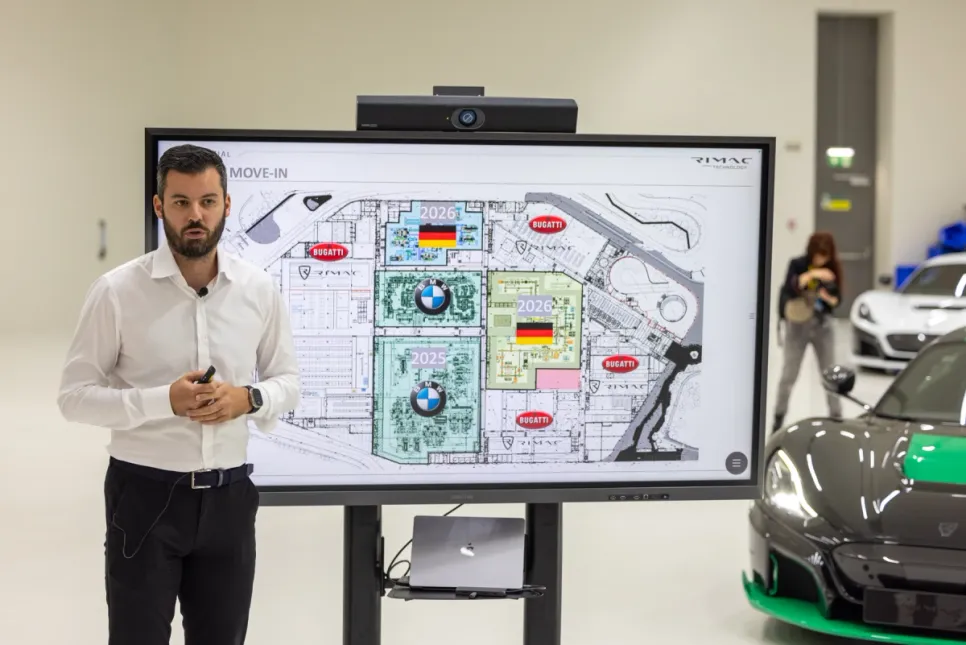US Launches Tech Force Program
The US administration unveiled a two-year program aimed at hiring 1,000 employees across various government agencies.

Phase one of the Rimac Campus, the new home of the Rimac Group in Croatia, has now completed construction, representing around 70% of the total Campus site. Encompassing the 75,000 m2 production facility, out of a total construction space of 100,000 m2 for the whole site, phase one provides the Group with critical production capacity, in addition to the existing 25,000 m2 production facility located a short distance away.
Total investment into the Campus to date has been €120 million, with the final figure expected to surpass €300 million when phase two is completed. The second phase will house the majority of office space and additional amenities. It is one of the largest industrial construction projects ever undertaken in this part of Europe.
The Campus is the home for Bugatti Rimac's hypercar development and production and for Rimac Technology’s R&D and production. It will house hypercar assembly, including the Nevera and Nevera R, as well as facilities for prototype assembly, composite manufacturing, CNC machining, upholstery, and a state-of-the-art paint shop. In addition, the campus will accommodate three new high-volume battery projects for premium European car makers. Construction of the Campus first commenced in 2021. Utilizing industrial building technology with prefabricated concrete and steel elements, the construction has progressed rapidly, allowing flexibility and adaptability for future changes.
The production building incorporates a "houses within a house" design, featuring six-meter-high ceilings and green atriums that provide natural light and fresh air. The main design element, a continuous aluminum facade, reflects light while dematerializing the massive volume of the production area, integrating the facility seamlessly with its natural surroundings. Inside, clear communication pathways serve as streets for easy navigation, complemented by shared spaces such as restrooms and kitchens. At the building’s heart is a central atrium with a large kitchen and communal dining area, serving as a gathering space for employees.
The move-in to the Campus started this summer, and currently, 400 employees are working there, out of over 1,500 Rimac employees in Croatia. More will gradually transition to the new Campus over time. Once the project is fully completed, the Campus will have the capacity to accommodate 2.500 employees.